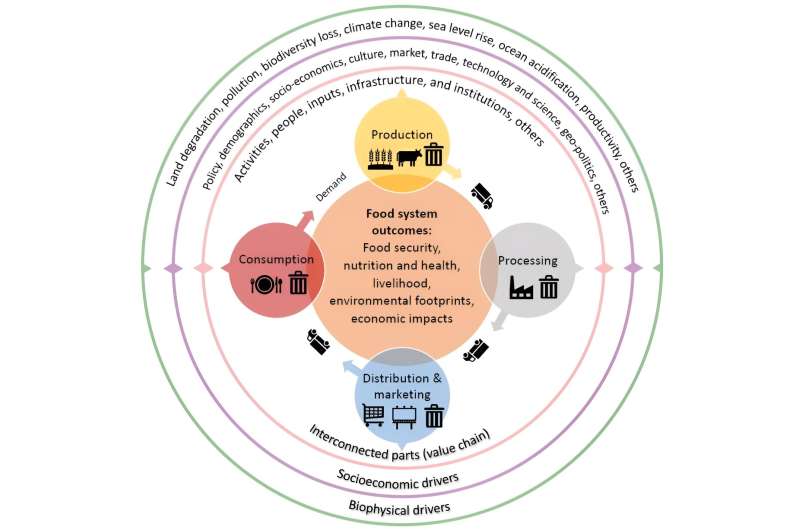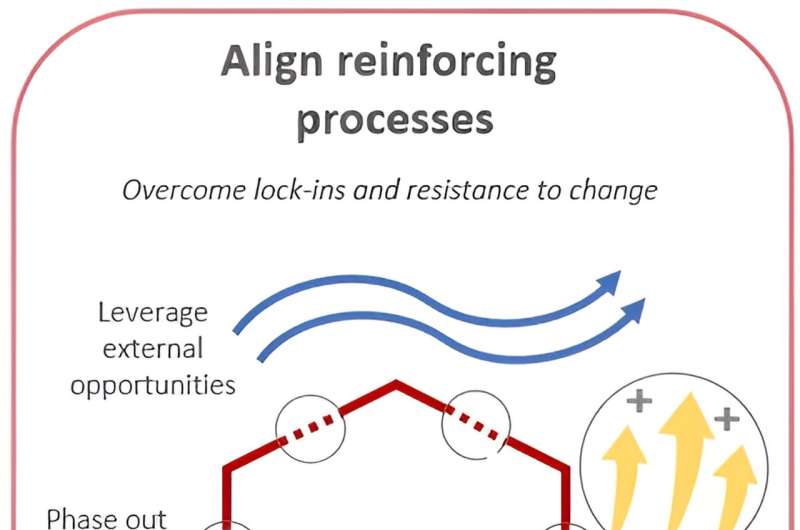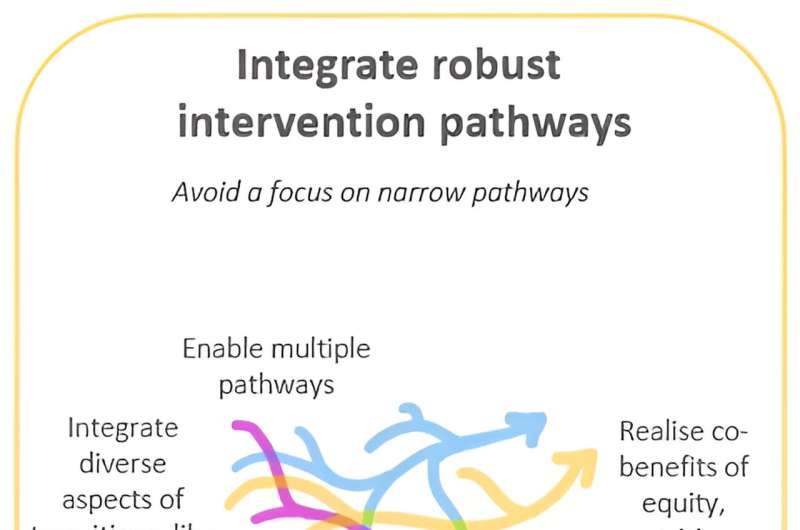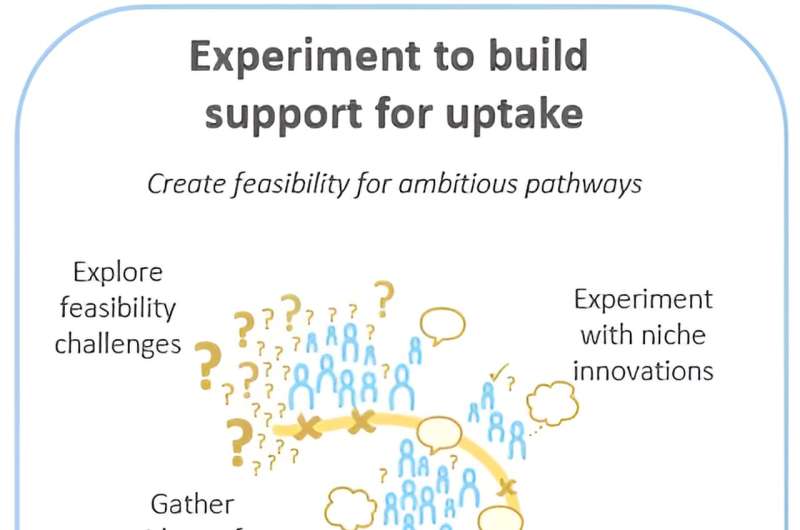This article has been reviewed according to Science X's editorial process and policies. Editors have highlighted the following attributes while ensuring the content's credibility:
fact-checked
trusted source
proofread
Research review offers insights for transforming the food sector

We're facing rising food insecurity, the cost-of-living squeeze, and ever-changing climate events. It's no wonder our food systems are in urgent need of a reboot.
Research, published in in One Earth, highlights what can be learned from other transitions. This includes how we can effect change, and establish new partnerships to support food system transformations.
Sustainable food futures
Food systems don't just put meals on the table. They also contribute significantly to the economy and the livelihoods of communities. However, climate disruptions and other factors present a challenge. They contribute to increased food costs and the cost-of-living crisis in general. The redirection of food systems towards more sustainable, equitable and nutritious future models is often referred to as 'transformation."
The need to transform Australia's food system was a focal point of a recent parliamentary inquiry into safeguarding the nation's food security. Findings from the UN Food Systems Summit in 2021, the subsequent dialogues in the Food Systems Summit +2 Stocktaking Moment in 2023, and the most recent UN Climate Change Conference in 2023, reinforce the urgency of the task.
Roadblocks to food system transformation
A major challenge to transformative change is that components of our food systems are locked into unsustainable practices. Large-scale food production is linked to almost 80% of global deforestation and 70% of freshwater use.
High food volumes have been achieved by intensifying yields at ever lower costs. In addition, there are various players that currently dominate food systems. They have significant incentives to maintain existing unsustainable practices.

Secondly, technological interventions seeking to optimize farming practices have had unintended consequences. The Green Revolution of the 1960s focused on technological research and development to address poverty and food insecurity in developing countries. However, it also resulted in negative consequences. These included environmental degradation and social inequities due to geography and local capacity.
Thirdly, ambitious solutions—particularly those requiring rapid, widespread, and significant change—are frequently unfeasible in the short-term. They rely on public acceptance, institutional capacity, political tenability, and land availability.
Consider changing diets. This depends on rapid behavioral change in the eating habits of billions of people globally, while overcoming strong cultural and social norms. There is a natural unwillingness to sacrifice in the short term, in order to achieve higher goals in the long term.
Emerging approaches to food systems transformation
Approaches to transformative change and its complexities in food systems are still emerging. Transformation of our food systems can be informed by research and practice in other domains. This work is more progressed in areas such as industries' decarbonization.
We can learn how to address complex food system challenges by analyzing different examples from different contexts. There are three obvious areas of overlap.

Alignment
There is an opportunity to align initiatives in ways that reinforce and catalyze food system transformation. For example, some of the challenges in the grocery retail sector in Australia have been attributed to consumer behavior, labor shortages, and disruptions to supply chains.
Addressing these challenges requires multiple processes to co-align in a way that catalyzes further change. This includes overcoming economic barriers, and changing the institutions that perpetuate current systems. All this needs to occur while harnessing emerging innovation such as shifts in lifestyle and the development of new markets to offer consumers greater choice.
Integration
Solutions for sustainability transitions in a range of sectors all point to the need for more integrated approaches. Pressure for land use change can arise from conflicting goals, such as food and fuel production and the risk we may compromise Australia's food security in the process.
Integrated assessments for Sustainable Development Goals teach us to balance solutions without compromising food security. They also offer insights on building resilience.

Experimentation
Australian food systems are neither fully global nor entirely local. This is thanks, in part, to the COVID pandemic, war and conflict in various regions, and an ongoing string of climate events. All of these factors, from local to global, influence our food systems and render it vulnerable in its current state.
Model-based experiments, which use simulations to replicate real-world conditions, can help identify solutions for making food systems resilient to emerging challenges. Social learning experiments show that trying diverse, parallel innovations can help identify and test multiple feasible solutions. Additionally, we can learn from their resilience during future crises.
The growth of the organic food market during the 1990s is an example of experimentation through which businesses learned about consumer demand, preferences, and motives.
Paving the way for sustainable food systems
These three approaches, drawing on existing research and learning, provide us with a handy shortcut to get the ball rolling. But this is just the tip of the iceberg. There is still much work to be done for learning and informing food system transformations.
New institutions are likely to be required to guide future food system transformations by building new knowledge and learning from past transformations.
Food System Horizons is seeking to implement the findings of the extensive consultation undertaken in building the Reshaping Australian Food Systems roadmap.
More information: Enayat A. Moallemi et al, Shortcuts for accelerating food system transitions, One Earth (2024). DOI: 10.1016/j.oneear.2024.01.010
Provided by CSIRO




















